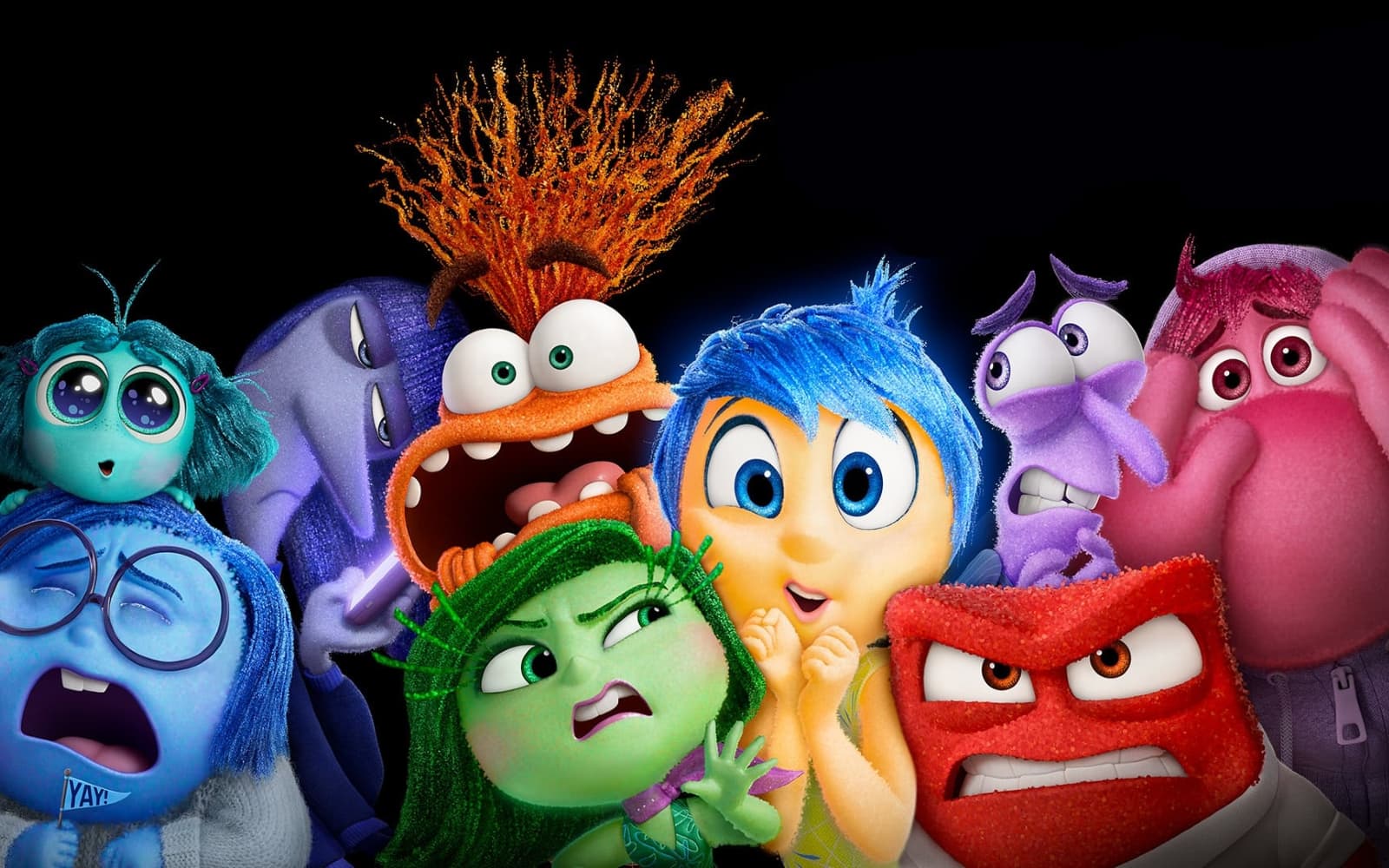I have a confession.
I’m a Licensed Professional Counselor, but until two days before seeing Inside Out 2, I still hadn’t even seen the first Inside Out.
I know. Malpractice.
Despite the hype, Inside Out met and exceeded my expectations. The personification of the core emotions—sadness, joy, fear, anger, and disgust—were delightfully impactful (although we can argue about whether disgust is genuinely a core emotion). Even the most emotionally illiterate person can’t help but recognize their own feelings in the emotion characters and see how they try to help us out.
Additionally, the representation of depression as disconnection from both sadness and joy was moving and psychologically accurate; the most direct path out of depression is to connect with our sadness and give ourselves an emotionally safe time and space to grieve. And yes, I cried during Bing Bong’s “take her to the moon for me” moment.
To say the least, I had high expectations going into Inside Out 2. The introduction of more emotions was tasteful and the exploration of one’s core self amidst the chaos of puberty was well-executed. Still, something seemed off. Something was missing for me.
It took me a few days to find the words, but once I found time to process the movie with some therapist friends, I started to put my finger on it.
“I dunno. I guess the dilemma the human character faced seemed too mild. Like, for 8th grade, it seemed too innocent, too light to be real life,” I said.
“I mean, what did you expect?” one friend asked.
“Well, when I think about an 8th grader’s inner life, I guess I expect it to be darker. Like, maybe the kid should be dealing with deep shame or a more stark split-screen between who they are and who they’re presenting to others. Or maybe the kid should struggle with isolation and loneliness even as the kid seems to have friends…”
And then it hit me. I was describing my own emotional experience in puberty, but my experience wasn’t normal.
I spent puberty in the closet.
I was describing my own emotional experience in puberty, but my experience wasn’t normal.
I’ve been out for more than a decade. I share my story about faith and sexuality for a living. Even so, it’s easy to forget how painful my teenage years were. It’s easy to miss how abnormal my puberty was. It’s easy to take for granted that my years of torture while in the closet were an unnecessary evil. God desperately wanted me to be spared of the tragedy of the closet, but the unfaithfulness of the Church fell short.
God didn’t mean for me to find some of my friends sexually arousing, then immediately plunge into self-hate where I banged my head against the proverbial (and sometimes literal) wall for having disgusting desires, and then pursue purity with an obsessive religiosity because I feared that Christ’s work on the cross couldn’t cover my abomination.
God didn’t mean for me to worry whether I’d be bullied by friends or kicked out of my house if my secret was discovered. God didn’t mean for me to have to hide myself from every friend and family member, to hyper-analyze every word and mannerism to make sure I didn’t betray my secret, or to brace myself for a lifetime of fakeness and disconnection.
God didn’t mean for the innocence of my childhood to be lost so swiftly and so devastatingly.
So it made sense that Inside Out 2 didn’t fit for me, though it still proved to be an emotionally nurturing experience. Watching the movie and processing it with friends sent me back to a core lesson from the first Inside Out: when the world isn’t as it should be and pain lingers, connect with that inner blue sadness blob and have a good cry.
The wounds of the closet are deep and working through trauma is rarely a one-time process. Those of us who spent years or decades hiding our attractions can therefore give ourselves grace when kids’ movies remind us of what wasn’t supposed to be and summon the ghosts of puberty. We can make space to mourn.
But what if we then used it? What if Christian survivors of the closet made meaning of our pain by ensuring that no kid ever had to go into the closet again? Unfortunately, surveys continue to find that even in the 2020s, the average LGBT+ person waits five years after noticing their same-sex attraction or gender incongruence before they open up to a parent or pastor.
Teens are still afraid that if and when they share their story, they’ll be called an abomination, told they’re dirty and disgusting, bullied, or kicked out of their house or church. They still spend five years making sense of big questions around identity and self-worth without their parents’ love and wisdom. Instead, they’re left alone in the dark surrounded by the Enemy’s lies and the world’s brokenness. For many, this leads to loneliness, shame, anxiety, depression, suicidality, and doubt about whether God loves us or even exists.
What if, instead, gay Christians committed to God’s wisdom made sure that every parent in our church knew how to share these simple but life-saving words with their kids:
If you notice you’re gay or trans, would you share with me soon? It’s not your fault. You don’t have to make sense of that alone. God isn’t surprised, He still loves you deeply, and He still has good and beautiful plans for your life. I still love you deeply, and we can make sense of this together.
Maybe then, we can look forward to a generation of kids in our churches who watch Inside Out 2 and see themselves in that film’s painful yet trauma-free puberty.





Leave a Reply